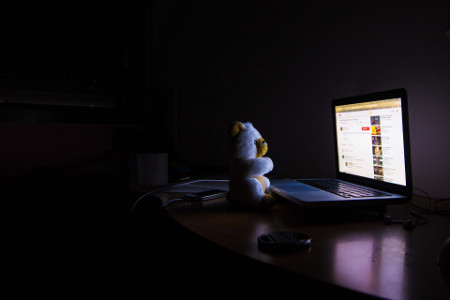What’s Up? – I’m Just Not Sleeping Well!
Most of us know that poor sleep can trigger migraine attacks, or make migraine symptoms worse or more frequent.
What we may not realize, however, is that there are many, many reasons why we may not be sleeping well.

So today we’re going to look briefly at a few of those reasons – and think about some basic information that we can give to a doctor or specialist to start looking for causes and treatments.
A few [surprisingly common] reasons why people don’t sleep well:
- Depression: A case where one can make the other worse, and vice versa.
- Sleep apnea (sleep apnoea): …of various types.
- Hot flashes
- Your pet: It’s moving around, getting up onto your bed… ? It’s a common problem!
- Migraine: Of course, had to mention that one. Another case where one can make the other worse.
- Caffeine
- Some antidepressants: And other common medications too!
- Worrying about not sleeping: Yup
- Sleeping pills: Yes, not using sleeping pills properly can lead to major problems.
- Overactive thyroid
- Acid reflux
- Restless Legs Syndrome
- An uncomfortable bed: Just how old is that pillow?
- Poor bedtime routine: For example, too much screen time in the last two hours of the day.
- Temperature: In the room/bed
- Alcohol: (in spite of common myths)
- Heart failure
- Obstructive Lung Disease
- Someone else in the room who can’t sleep
…and those are only a few examples. As you can see, some are serious in themselves, some not. Some are obvious, some are not. Some are easy to fix, some are not. But it helps to open up your mind and think about all the possibilities, instead of just assuming it’s one or two of the more commonly mentioned things.
It’s critical that we think about sleep when we’re trying to get good treatment for migraine, and other headache conditions as well. So where do we start?
Easy Sleep Evaluation
It helps to evaluate your own sleep, and then bring the information to your doctor. This doesn’t mean using an app with complicated charts, although that might be useful. And actually, you want to avoid obsessing too much about your sleep on a daily basis, which can easily make things worse.
Harvard Medical School has published a very useful “sleep diary” to fill out. There are simple questions for before bed, and after you wake up. They recommend using this diary every day for a week before talking to your doctor or specialist.
Before bed:
- Medications during the day
- Caffeinated beverages during the day
- Alcohol during the day; list amount and time
- Exercise during the day
- Sleepiness during the day
- Naps during the day
- Food consumed within three hours of bedtime
- Activities within two hours of bedtime
In the morning:
- Bedtime last night
- Approximate time it took to fall asleep
- Approximate number of awakenings during the night
- Reasons for awakening, if known
- Time of awakening for the day
- Level of energy and alertness after waking up in the morning (feeling refreshed?)
If you sleep with someone else in the room, also ask them what they’ve noticed about your sleep.
For more useful information, check out the full article here: Insomnia: Restoring restful sleep
